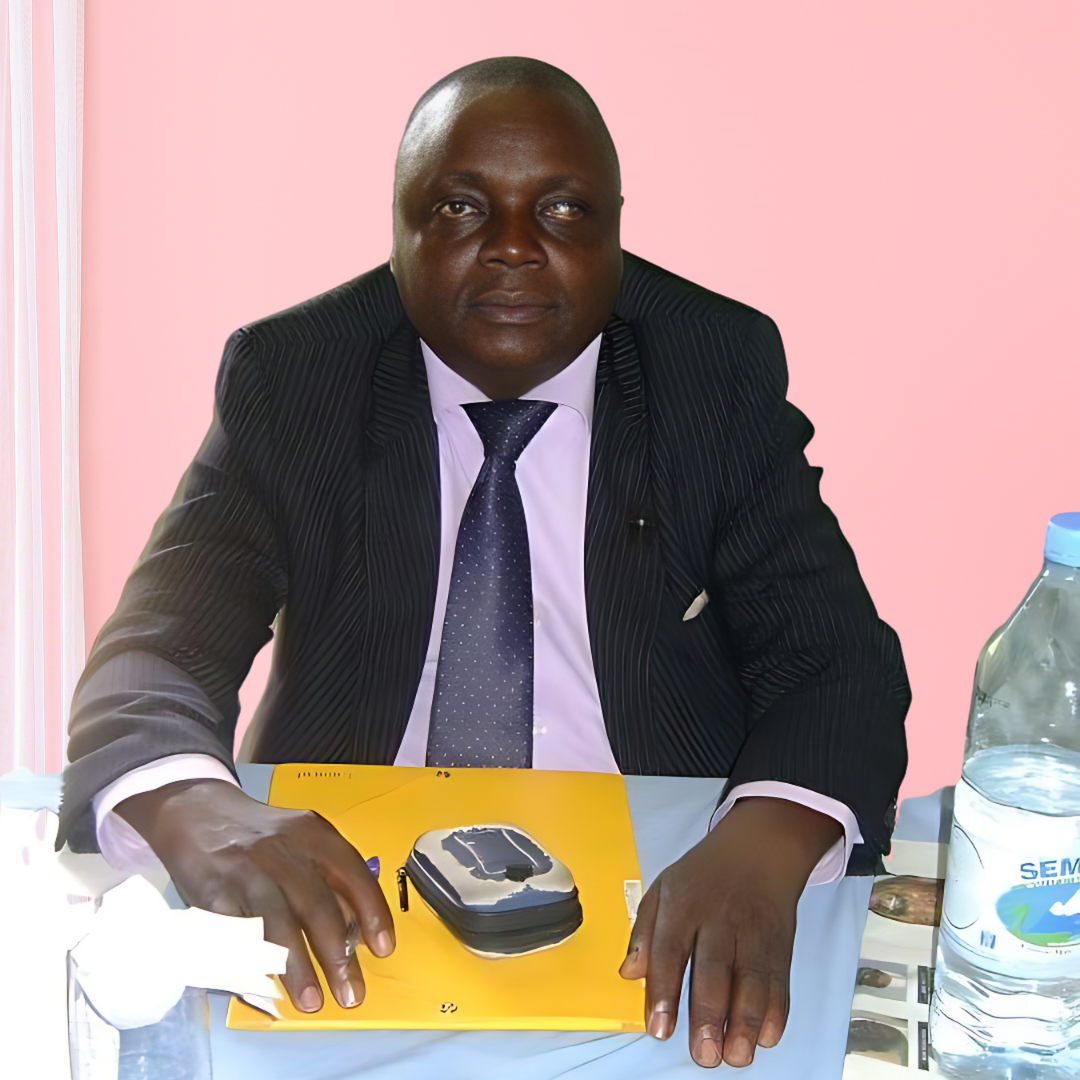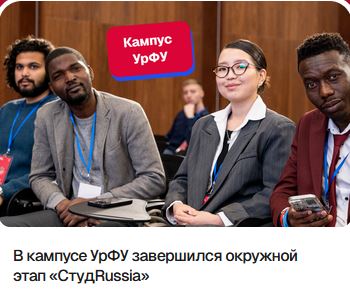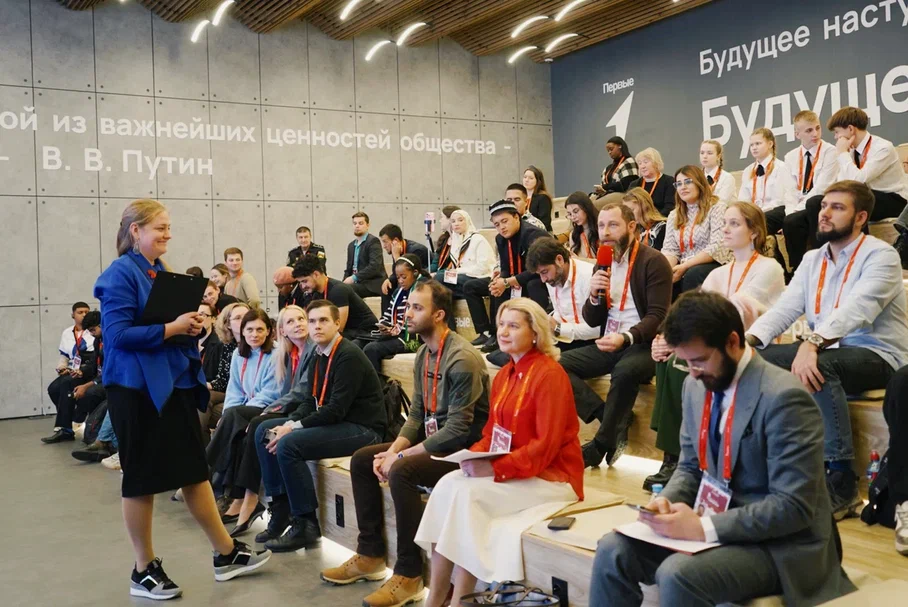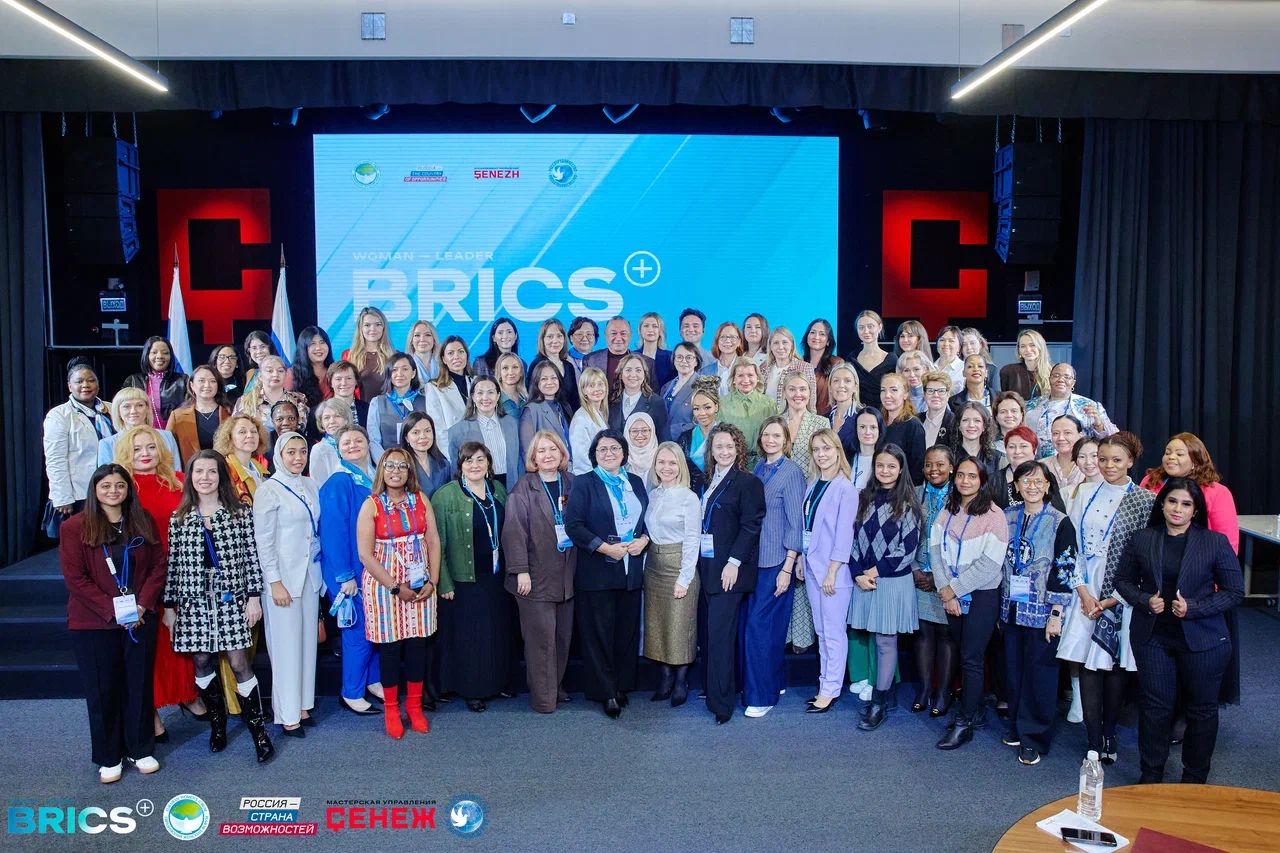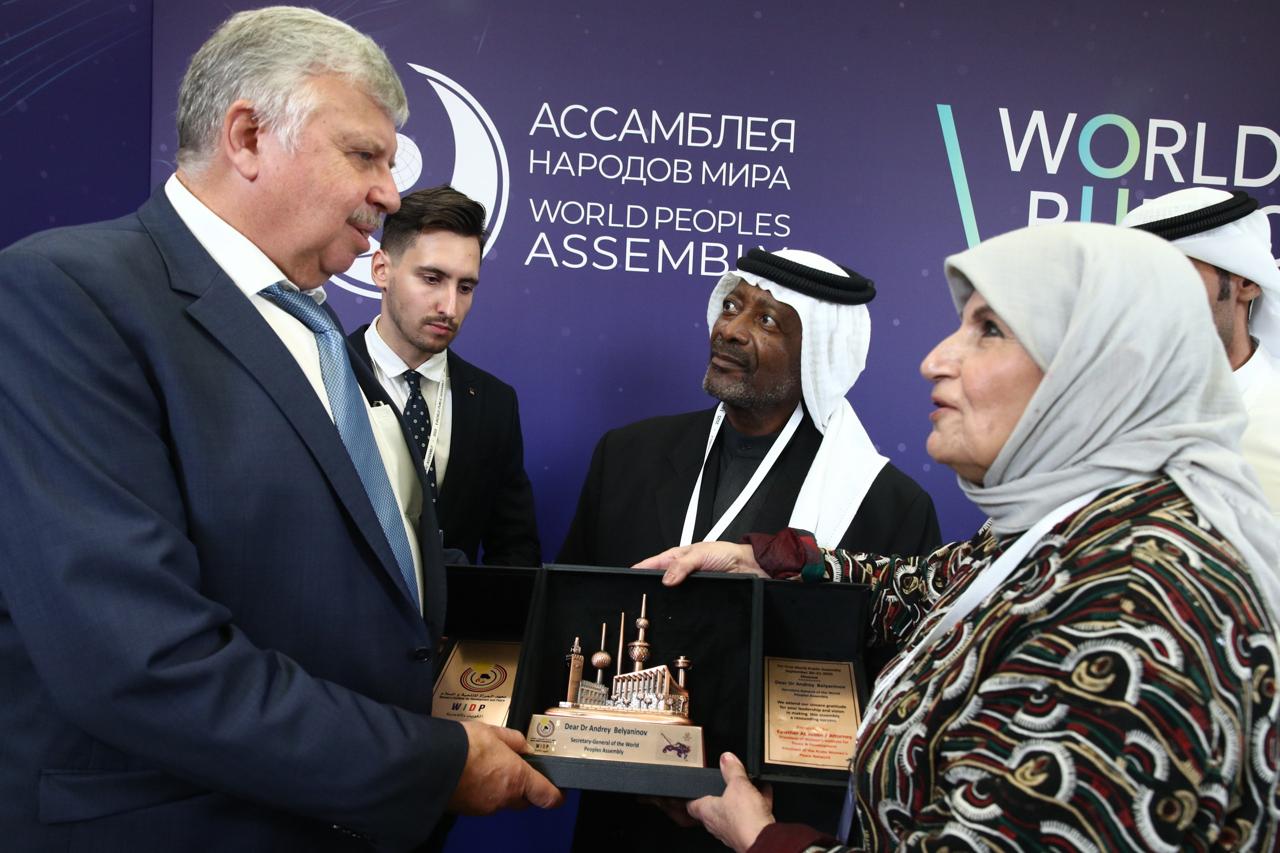New generation diplomacy, digital sovereignty, and the path of a “champion”: the business program of the World Youth Festival Assembly has begun
On September 18, the official opening of the business program of the World Youth Festival took place. On the first day, participants attended sessions on thematic tracks: media, education and science, sports, entrepreneurship, digitalization and IT, creative industries, and public administration.
Participants in the “Media” track attended the talk show “Media 2030: The Future of Content” and learned about ways to transform the media sphere in the coming decade. Experts discussed long-term trends in content development, the impact of digital technologies and artificial intelligence on shaping public discourse, as well as new challenges for media professionals and trusted institutions. On this day, young people from different countries also divided into teams as part of the case study session “Media Collaboration: Creating Global Trends Together” to develop an international media campaign aimed at uniting young people from different countries around a common goal. The experts were Mikhail Zvinchuk, a Russian military blogger and author of publications on the Telegram channel “Rybar”, and Grigory Azaryonok, journalist and TV presenter of the Minsk government channel “Stolichnoye Televideniye” (Capital City TV) from the Republic of Belarus.
The international team representing the “Public Administration” track attended the talk show “The Soft Power of Youth, or How New Generations Are Changing the World.” During the show, experts from Slovakia, South Ossetia, Mexico, and Russia discussed how young people are shaping the future of their countries and influencing global processes through culture, education, digital technologies, and civic engagement. During the session “New Generation Diplomacy: Tools and Practices of Intergovernmental Dialogue,” participants learned from experienced experts how to conduct negotiations. The speakers were George Galloway, leader of the British Labour Party, writer, and journalist; Catherine Nakhabi Omanyo, a Kenyan National Assembly member; and Christopher Helali, CEO for Asia, the Middle East, and Latin America at JPA International Legal Services, from the United States.
As part of the sports program, participants joined the workshop “Faster! Higher! Stronger! Launching an International Sports Challenge” and learned how sporting events drive social change, create new urban communities, and shape a positive image of territories in an international context.
A highlight of the “Creative Industries and Creativity” track was the talk show “The Culture of Soft Power.” Experts from Russia, Venezuela, the US, and Indonesia discussed the role of music, cinema, and games in shaping “soft power” and how culture influences global processes and becomes a tool for international dialogue and competition. As part of the “Digitalization and IT” track, a talk show entitled “Digital Sovereignty: Technology and Strategy Architecture” was held. An international team of experts from the UAE, China, Ghana, and Brazil discussed the architecture of digital sovereignty: from fundamental technologies to strategies for achieving it at the government, corporate, and private initiative levels.
Participants in the “Education and Science” track attended a lecture by Anatoly Wasserman, a member of the Russian State Duma, a member of the Committee on Education, and a publicist. He talked about how modern digital platforms are radically changing the ways in which knowledge is disseminated, how social media influences scientific communication, and how science can maintain its credibility and depth in an environment of accelerated information exchange. On this day, foreign and Russian youth in the “Entrepreneurship” track learned how the principles of big-time sports can be used in business, produced a merch at the Quokka merch store, and learned how to launch their own projects from experts from Russia, Zambia, Abkhazia, and the United States during the session “Idea vs. Project: How to Create and Launch Something That Has Never Existed Before.”
On the first day of the World Youth Festival Assembly, Deputy Prime Minister of the Russian Federation Dmitry Chernyshenko and Head of the Federal Agency for Youth Affairs (Rosmolodezh) Grigory Gurov also attended the event. After inspecting the venues of the Assembly and talking with participants, Dmitry Chernyshenko and Grigory Gurov took part in a pitch session. During the session, young leaders presented projects aimed at developing international youth cooperation, ensuring open access for young people to tools for personal and professional growth, combating disinformation, and preserving historical memory.
For example, Carlo Di Martino, a participant from Italy, proposed scaling up the format of the Summer Schools arranged by the World Youth Festival Directorate through the expansion of the scope and geographical locations of participants, as well as creating an International Content Centre for unbiased coverage of life in Russia abroad.
Ayoub Souane, a student from Morocco, focused on the adaptation of foreign students, proposing to introduce a mentoring system, create a bank of best practices, and implement educational programs to improve the skills of university staff.
Popular Brazilian blogger Pedro Daher Simão and Czech journalist Rostislav Lussier initiated the idea of thematic blog tours around Russia. In their opinion, such an initiative will help to provide the whole world with unbiased information about contemporary Russia. Travel blogging is one of the most popular formats nowadays, which inspires trust among modern young people.
Representative from Belgium, Kevin Pierre S. De Ridder, spoke in favor of scaling up volunteer campaigns to restore monuments to Russian soldiers abroad to preserve historical truth. The young man proposed holding campaigns to restore monuments, improve memorials to Soviet soldiers, and draw public attention to this issue.
Angelina Mayer, a student at Krasnoyarsk State Pedagogical University named after V.P. Astafiev and a participant in the 2024 World Youth Festival, proposed launching a program for foreigners to live with Russian families. This would help them learn about the everyday life, customs, traditions, and values of Russians.
On the same day, a delegation from Abkhazia met with Grigory Gurov, head of Rosmolodezh, and Dmitry Ivanov, CEO of the World Youth Festival Directorate. The Abkhaz delegation was represented by Deputy Prime Minister and Acting Chairman of the State Committee of the Republic of Abkhazia for Youth and Sports Tarashch Khagba, Deputy Vice-Prime Minister of the Cabinet of Ministers of the Republic of Abkhazia Roman Tskua, State Secretary of the State Committee of the Republic of Abkhazia for Youth and Sports Idris Kara-Osman-ogly, and Head of the Youth Department of the State Committee of the Republic of Abkhazia for Youth and Sports Beslan Arshba.
During the negotiations, the parties discussed the progress of joint programs in 2025, noting the active and growing participation of Abkhaz youth in major Russian forums, educational and volunteer projects. Particular attention was paid to the prospects for creating a contemporary youth infrastructure in the Republic of Abkhazia. An important topic of conversation was increasing the project engagement of young people from Abkhazia, participation in the Rosmolodezh grant competition, and joint projects in 2026.
Participants in the World Youth Festival Assembly also visited the booths of the event’s partners. For example, experts from Avito held lessons on entrepreneurship. They talked about how to start a business with a small amount of start-up capital, how to promote your brand, and what trends should be taken into account by business owners nowadays.
As part of the interactive program of the Russian “Znanie” (Knowledge) Society, mixed martial arts legend Jeff Monson shared stories from his career with the participants of the assembly: who inspired him among Soviet athletes, what rituals helped him get ready for a fight, and what role psychology played in becoming a champion. The conversation focused on the differences between American and Russian wrestling schools, the power of defeat as the foundation for future victories, and advice for those just starting out on their athletic journey.
The presidential platform “Russia – Country of Opportunities” prepared an extensive program for participants. The SportTrack project held three master classes for festival guests with active exercises entitled “Leadership in Motion: How Sports and Teams Reveal Personality”. Ivan Stepanuk, the winner of the project’s first season, helped participants come up with their own personal gesture that represents their inner strength and confidence. Guests also learned how to create a “leadership mosaic” and drafted a leadership manifesto. In turn, experts from the “I Am a Professional” Olympiad held a master class on social media management entitled “Reviving the Dead: How to Get Your Audience Talking,” an intellectual game called “Scientific Mafia,” and an express activity called “Your Profession of the Future.”
At the master class, the Assembly’s participants learned about cutting-edge tools for engaging subscribers and reviving dialogue in blogs. Using practical examples, the project specialists showed how to turn a silent community into an active one, talked about the right formats for publications, and discussed the subtleties of dealing with comments. In the express activity “Your Profession of the Future,” participants predicted their future profession using a drawn card. The most interesting ones included cloud cybersecurity specialist, foresight specialist, neuromarketer, digital producer, and technoethicist.
In addition, a three-day intensive course was launched by the New Media Workshop project of the presidential platform “Russia – Country of Opportunities”. Foreign participants in the Media track began studying a unique educational course arranged by the World Youth Festival Directorate and the New Media Workshop. Under the guidance of leading Russian experts and experts from the Global Fact-Checking Network (GFCN), participants will learn how to create high-quality, engaging content, master working with neural networks, and study tools for countering the spread of fake information.
The general partners of the WYF Assembly-2025 are the Russian Music Union, JSC Russian Railways, and Phygital Games. The general information partner is the international television channel RT, and the general media partner is ANO Dialog Regions. The partner for the excursion and regional programs is the More Than Trip program. The strategic partner is VK Tech. Co. The following have also joined the partnership program: “New Generation” program arranged by the Federal Agency for Affairs of the Commonwealth of Independent States, Compatriots Residing Abroad and International Humanitarian Cooperation (Rossotrudnichestvo), the Movement of the First, the presidential platform “Russia – Country of Opportunities”, Sovcombank, the Avito Tech. Co., State Atomic Energy Corporation Rosatom, Russian “Znanie” (Kno
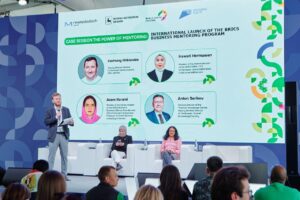 wledge) Society, the Film Studio Soyuzmultfilm, the Government of the Krasnoyarsk Territory, the Central Bank of Russia, the program for young entrepreneurs “Rosmolodezh.Undertake” and the Mashuk Knowledge Center. Information support for the event is provided by Rossiyskaya Gazeta, Argumenty i Fakty publishing house, the African Initiative and the Window to Russia project of ANO “TV-Novosti”.
wledge) Society, the Film Studio Soyuzmultfilm, the Government of the Krasnoyarsk Territory, the Central Bank of Russia, the program for young entrepreneurs “Rosmolodezh.Undertake” and the Mashuk Knowledge Center. Information support for the event is provided by Rossiyskaya Gazeta, Argumenty i Fakty publishing house, the African Initiative and the Window to Russia project of ANO “TV-Novosti”.
The organizer of the World Youth Festival Assembly is the Federal Agency for Youth Affairs (Rosmolodezh), the co-organiser of the event is the Government of the Nizhny Novgorod Region, and the event operator is the World Youth Festival Directorate. The Festival pursues the goals of the Youth and Children national project.
For reference:
In accordance with the instructions of the President of the Russian Federation, Vladimir Putin, on preserving and developing the legacy of the World Youth Festival, which took place on the Sirius Federal Territory in 2024 and united 20,000 young people from 190 countries of the world, festival events on the territory of the Russian Federation will be held annually. The next World Youth Festival for 20,000 participants will be held in 2030. In 2026, there will be a smaller event, an International Youth Festival with 10,000 participants. In between, the World Youth Festival’s themed Assemblies will be held annually for 2,000 participants. The World Youth Festival Directorate continues its work aimed at strengthening international youth cooperation.

